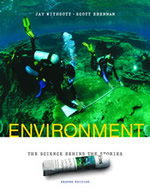Home Research Publications Teaching CV Collaborators

| Monarch butterflies in Mexico |
Teaching Philosophy & Student Advisement
An essential skill that college/university students need to succeed in life is the ability to think critically. A successful teacher will not only provide students with the necessary background information for a subject, but will also challenge students to think of creative ways to address novel questions. Also, an important asset a successful science educator must possess is the ability to inspire their students. Students often become interested in learning a subject when their instructor conveys excitement towards the material and encourages students to share in this excitement through discussions in the classroom or through undergraduate research. I strive to combine both components of this philosophy (encouraging critical thinking and inspiring students) into my teaching and my mentorship of students.
Undergraduate Mentorship:
Undergraduate research experience is essential for undergraduates who want to pursue professional or graduate careers. Undergraduates can gain this experience by participating in experiments with graduate students, postdocs and faculty, or through their own independent research projects. I have involved nine undergraduate research assistants thus far in my research projects (one of which was recently a co-author on a paper with me; Stillwell et al. 2007, Oecologia), because I find it is immensely valuable to their pursuit of a career in biology and because I find it to be a valuable and rewarding experience for me.
Graduate Mentorship:
Graduate research and teaching is necessary for students to pursue professional careers in biology. These students will become the next generation of biologists, shaping the future of our profession through the diversity of ideas they bring with them. It is thus essential that graduate students receive the best possible training to prepare them to meet the demands of their profession. During my two postdocs, I have taken the time to co-advise graduate students in my lab. I really enjoy having converstions with students on how to successfully conduct research (such as nagivating the publication process, how to ask and answer the "big" questions in biology, how to do statistics, etc.) and how to be a successful teacher (how to engage students, activities that promote active learning, etc.).
Courses:
BIO105: Environmental Biology (Pima Community College)
Environmental biology explores the fundamentals of ecology and their relevance to human
impact on natural systems. This includes ecosystem structure and function, population dynamics,
human impacts on the earth’s natural resources, and “green” economics.
BIO105 Syllabus for Spring 2008
Textbook:

Environment: The Science Behind the Stories by Jay Withgott & Scott Brennan, 2nd Edition, 2007